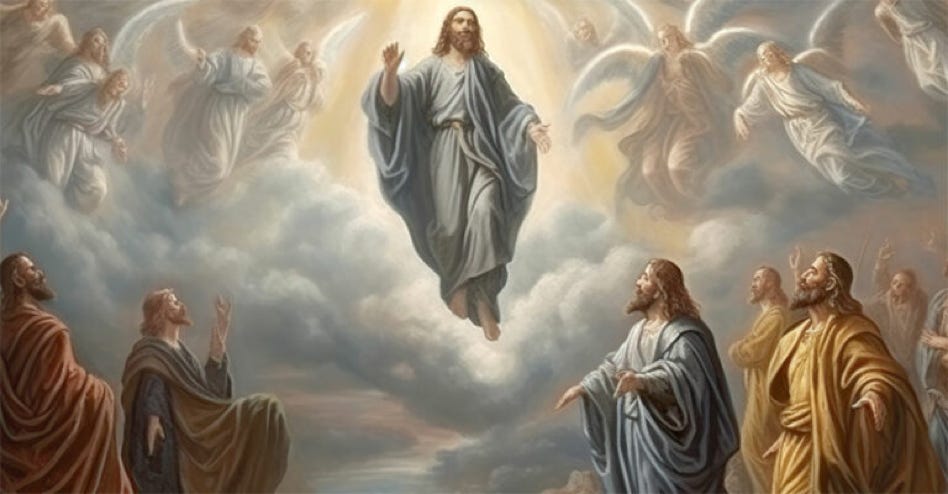
The Ascension
Of the Lord
Monk’s
Corner

Audio
The Ascension Mt 28:16-20
There is a story about Leonardo Da Vinci, he had started work on a large canvas in his studio. He worked on choosing the subject, planning the perspective, sketching the outline, applying the colors with his own unique genius. Then suddenly he stopped working on the painting. He called upon one of his students and invited him to complete the painting. The student protested that he was unworthy and unable to complete this great painting. But Da Vinci silenced him by saying, “Will not what I have done inspire you to go beyond your best?”
Jesus, our Master painter, began his painting two thousand years ago – by what he taught us and the miracles he performed, but mostly by his Passion which illustrated his total message and he has left us to finish his picture. Will his life not inspire us to finish the picture? — This is the essence of the Ascension.
Jesus has no other plan than to depend on the fire of faith of those disciples who will come to love and believe in him. He didn’t really leave us when he ascended into heaven, he is closer to us now than he has ever been. Though risen and ascended, he is still with us through the grace of the sacraments. He is truly present in the Eucharist when we receive him in a holy communion and his presence remains in the tabernacle where the Eucharist is reserved. The body and blood, soul and divinity under the species of bread a real life-giving Spirit. The gospel tells us that in his return to the Father, Jesus completes his mission on earth. This is a great and wonderful day for Jesus as, in his human nature, he joins again with the Father and the Spirit and glories in his divinity. The gospel stories about Jesus after the resurrection give us hints of what life will be like in heaven. But it is in his Ascension that we see him entering fully into the life and glory of God. The prospect of sharing that glory should be the driving force of our lives as Christians.
According to Luke, the disciples returned to Jerusalem with great joy. It seems that Jesus’ exultation and final blessing gave them, as it gives us, a feeling, a realization that although absent, he is still present, present with us through the pain and sorrow that life may give us. St. Augustine says, “Christ is now exalted above the heavens, but he still suffers on earth all the pain that we, the members of his body, have to bear. He indicated this when he cried out from heaven ’Saul, Saul, why do you persecute me?’ and when he said: ‘I was hungry and you gave me food.’ While in heaven he is also with us, and while on earth we were with him. He is here with us by his divinity, his power and his love.”
Jesus taught us lessons of faith, hope, forgiveness, mercy, redemption and love. We cannot put these lessons on a shelf and admire them from a distance. They stand before us in the person of Jesus. They are the outline of his masterpiece. Thus we make his words real in our lives. Following Jesus was never a private religion, we are to do as Jesus did, to go first to the poor and the sinners, to any in who are in need of him, to help them and save them.
That is why the angel is saying to us, people of Colorado why are you standing here gazing into the heavens? The words of the angel suggest that we must continue the work of Jesus to the best of our ability we must finish the mission that Jesus began and bring him to all the ends of the earth.
We must let the Holy Spirit lead the way. Next week we will remember in celebration the coming of the Holy Spirit as he came to Mary, the apostles and to us in the sacrament of Confirmation.
Thus we come to the end of St. Luke’s inspired gospel. When we look at it as a whole it should inspire us to express our compassion and love as we reflect on Christ’s life here on earth. “Those who have responded to the love and compassion of God will go into eternal life. Those who have refused them to the end will be consigned to the fire that is never extinguished. And of his kingdom there will be no end.” (Creed of Pope St. Paul VI)
© JOSEPH MEILINGER 2025